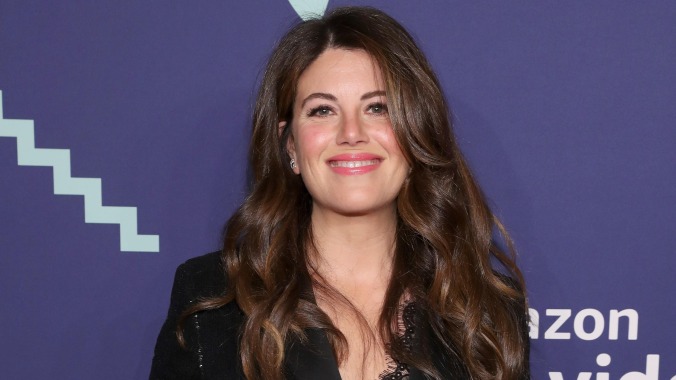When Murphy first contemplated diving into the most publicly discoursed affair in American politics, he knew that he wanted to focus on those without the power: the women. The director also knew that he would not move forward with the series without Lewinsky’s approval. Lewinsky has been a part of every step of the process, including making notes on scripts and assessing scenes as they were filmed. However, it hasn’t been easy reliving the traumatic moments that changed the then 22-year-old’s life forever.
“You go to bed one night a private person, and the next day you’re a public human being and the whole world hates you. And you might go to jail. And you’re going to bankrupt your family. And, and, and…” Lewinsky said in July. “And just because I wasn’t on the news every night for 20 years in the same way that I was in 1998 doesn’t mean that this story ended. Ten years on, I still could not get a job. I couldn’t support myself.”
While the writers opted out of showcasing the more salacious and sexual details of Clinton’s and Lewinsky’s affair, there were still plenty of “emotional truths” Lewinsky had to confront while overseeing the series. Lewinsky knew that some things simply could not be left out, including the infamous scene featured in the Starr Report, which she convinced screenwriter Sarah Burgess to include in the series.
“Listen, I would’ve loved to have been really selfish and said, ‘That’s great that you guys think we don’t have to show that, fantastic,’ but I’m incredibly experienced in understanding how people see this story,” Lewinsky says. “So, ultimately, I felt two things: One was that I shouldn’t get a pass because I’m a producer; and two, that it was unfair to the team and to the project because it would leave everybody vulnerable.”
Beanie Feldstein will portray Lewinsky in Impeachment: American Crime Story, which premieres September 7.

 Keep scrolling for more great stories.
Keep scrolling for more great stories.
